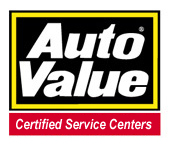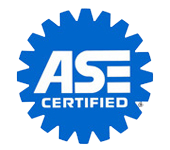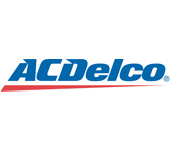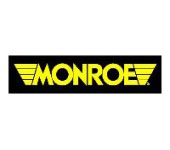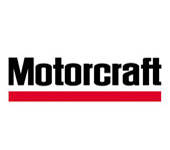
Archive for March 2025A Turn for the Worse (Using Turn Signals)Posted March 23, 2025 3:29 AMDistracted driving is bad, you know that. Daydreaming, talking on the cell phone, putting your makeup on in the rear view mirror. All bad. But there's something else that causes more than twice as many accidents, according to a recent study. And that's people who don't use their turn signals. Maybe you're one of them. One survey said nearly a quarter of drivers were just too lazy to use their turn signals. Others said they didn't use them because they weren't really necessary. Traffic laws may dictate otherwise, but statistics show police don't write that many tickets for turn signal violations. You may have encountered the driver who cuts into your lane without signaling a change. Often, that person does it deliberately to catch you off guard so you won't invade his or her space. And when it comes to young drivers using turn signals, one insurance company survey showed more than two-thirds of those they talked to admitted it wasn't their regular practice. Knowing that, you may wonder why you should use your turn signal. The reason is simple. It lets other drivers know what you plan to do. Driving it tricky enough with all the moving parts on the road. The more you know what other people are doing, the more you can prepare for that with the way you drive. How many times have you seen someone turn left without putting their turn signal on? That's a leading cause of rear-end accidents. Not only does using your turn signal promote safety, it also shows courtesy to other drivers. There are some drivers who don't use turn signals because their turn signals don't work. What a lousy excuse! All of the safety equipment in your vehicle should be working; if it isn't, head over to your repair facility. Often it's as simple as a burned out bulb or a broken wire. Finally, the number one reported reason for not using a turn signal is that drivers just forget to do it. (And the ones who DO use their turn signals and forget they're on? We won't even go there.) Engineers put turn signals on vehicles for a reason. They help drivers communicate with other drivers. Using them could save accidents… and lives.
To Fix or Not To Fix: That Is the Question.Posted March 16, 2025 3:30 AMNo matter what vehicle you drive, when certain things break, you have to make a decision. Should I get it fixed now, later or never? Air conditioning is one of those things. You can certainly live without air conditioning, but it sure is nice to have on a sweltering day. Let's say your air conditioning breaks in the fall and you live in a climate where it gets quite cold in the winter. Should you get it fixed now, wait until spring since it won't get warm until then or maybe not get it fixed at all? That can be a tough decision. There are several reasons air conditioning in vehicles break. One is fairly simple: It could be an electrical problem, perhaps a relay or solenoid is not turning on the system. It's also a fairly inexpensive repair and doesn't require hours of labor. Or, the problem is that the coolant has leaked out. Your service facility can find the leak and replace the parts that are leaking. With a refrigerant recharge, you're back in business. The repair costs vary, depending on the reason for the leak. When air conditioning malfunctions involve a compressor, evaporator or condenser, the costs can be significant since parts and labor add up. Depending on the age and value of your vehicle, you may choose to simply roll down the windows and live with it. Keep in mind that many vehicles in cold climates use air conditioning in winter. Many vehicles automatically turn on the A/C when you use the defroster. The A/C dries the heated air it blows on the windshield and side windows to eliminate fogging more quickly. Outside conditions such as snow and ice can severely hamper visibility. Add to that fogging on the inside and it can present very challenging conditions for the driver. In order for all systems to be functioning optimally, a vehicle owner might feel it's worth it for safety reasons to get a broken air conditioner fixed, even if it is done right before the approach of cold weather. Discuss these options with your service advisor so you can make the best decision for your situation. Brake World
1213 N State Rd 7
Royal Palm Beach, FL 33411
561-798-3949
Busted! Air Conditioning (Air Conditioning Maintenance)Posted March 9, 2025 3:16 AMYour vehicle's air conditioning is something you count on when the weather heats up. But there's bound to be a day when you turn it on and one of these things happens:
Some people are tempted to try to make the diagnosis—and the repair—on their own. They think it's just run out of refrigerant and they can pick up a can at a local auto parts store and re-charge it. If only it was that easy. A vehicle's air conditioning system is complex and made up of many parts. A compressor, evaporator, condenser, tubing, hoses, sensors, valves… the list goes on and on. Each of these components could be the reason for the problem. It could be a leak that's letting the refrigerant escape, but simply re-charging the system hasn't fixed the problem. You have to find the source of the leak and fix it. Service facilities have a device called a "sniffer" which can sniff out refrigerant chemicals. And they can use black light to locate refrigerant that has an ultraviolet dye in it. But often other components wear out; blower motors go bad, resistors blow, tubes clog, compressors fail. And diagnosing that takes training and special equipment you'll find at your service facility. One other thing to keep in mind. It's always better to catch any problems in the air conditioning system before it fails. Ask your service advisor about having the A/C checked as part of the vehicle's maintenance. That's the cool way to go. Brake World Stopping "Brake" Downs (Brake Pad Replacement)Posted March 2, 2025 3:13 AMIf someone tells you to put the brakes on something, you know it means stop. And stopping is one of the most important safety maneuvers you can do in any vehicle. That means your brakes have to work properly. Let's face it. You stop dozens of times every time you drive. And over time, that takes its toll on your brakes. Friction is what stops your vehicle. Most newer vehicles have disc brakes, and the parts that wear out the fastest are those that rub against each other every time you stop, the rotors and the pads. The rotors are discs that rotate with the wheels, and the pads are removable surfaces that make contact with the rotors to slow or stop your vehicle. Bits of both wear off each time you stop, and when enough of either (or both) lose too much material, your brakes become unable to safely slow or stop your vehicle. The pads usually are the parts that wear out first. Signs that your brakes might be getting worn are:
If you notice any of these, bring your car to us so we can have a technician inspect your brakes. Most brake pads have a wear indicator that indicates it's time they should be replaced. The technician who is checking things out will also look at your rotors for wear, as well as other brake system components. With regular inspections and maintenance, you'll be sure that when you need to stop, your vehicle will be up to the task. Brake World Stopping "Brake" Downs (Brake Pad Replacement)Posted March 2, 2025 3:13 AMIf someone tells you to put the brakes on something, you know it means stop. And stopping is one of the most important safety maneuvers you can do in any vehicle. That means your brakes have to work properly. Let's face it. You stop dozens of times every time you drive. And over time, that takes its toll on your brakes. Friction is what stops your vehicle. Most newer vehicles have disc brakes, and the parts that wear out the fastest are those that rub against each other every time you stop, the rotors and the pads. The rotors are discs that rotate with the wheels, and the pads are removable surfaces that make contact with the rotors to slow or stop your vehicle. Bits of both wear off each time you stop, and when enough of either (or both) lose too much material, your brakes become unable to safely slow or stop your vehicle. The pads usually are the parts that wear out first. Signs that your brakes might be getting worn are:
If you notice any of these, bring your car to us so we can have a technician inspect your brakes. Most brake pads have a wear indicator that indicates it's time they should be replaced. The technician who is checking things out will also look at your rotors for wear, as well as other brake system components. With regular inspections and maintenance, you'll be sure that when you need to stop, your vehicle will be up to the task. Brake World | ||
SearchArchiveNovember 2018 (16)December 2018 (5) January 2019 (5) February 2019 (4) March 2019 (5) April 2019 (4) May 2019 (4) June 2019 (5) July 2019 (4) August 2019 (4) September 2019 (5) October 2019 (4) November 2019 (4) December 2019 (5) January 2020 (5) February 2020 (4) March 2020 (5) April 2020 (4) May 2020 (5) June 2020 (4) July 2020 (4) August 2020 (5) September 2020 (4) October 2020 (4) November 2020 (5) December 2020 (4) January 2021 (6) February 2021 (4) March 2021 (4) April 2021 (4) May 2021 (5) June 2021 (4) July 2021 (4) August 2021 (5) September 2021 (4) October 2021 (5) November 2021 (4) December 2021 (4) January 2022 (6) February 2022 (4) March 2022 (4) April 2022 (4) May 2022 (5) June 2022 (4) July 2022 (5) August 2022 (4) September 2022 (4) October 2022 (5) November 2022 (4) December 2022 (4) January 2023 (5) February 2023 (4) March 2023 (4) April 2023 (5) May 2023 (4) June 2023 (4) July 2023 (5) August 2023 (4) September 2023 (4) October 2023 (5) November 2023 (4) December 2023 (5) January 2024 (5) February 2024 (4) March 2024 (5) April 2024 (4) May 2024 (4) June 2024 (5) July 2024 (4) August 2024 (4) September 2024 (5) October 2024 (4) November 2024 (4) December 2024 (5) January 2025 (4) February 2025 (4) March 2025 (5) April 2025 (4) May 2025 (4) June 2025 (5) July 2025 (4) August 2025 (5) September 2025 (4) October 2025 (4) November 2025 (5) December 2025 (4) January 2026 (4) | CategoriesFuel Economy (6)Maintenance (8)Brakes (11)Tires and Wheels (2)Timing Belt (3)Fluids (6)Battery (10)Headlamps (4)Alternator (6)What Customers Should Know (52)Cooling System (6)Service Standards (3)Customer Detective Work (1)Check Engine Light (2)Service Intervals (1)Exhaust (4)Fuel Saving Tip: Slow Down (1)Suspension (1)Shocks & Struts (3)Alignment (4)Oil Change (5)Tires (10)Windshield Wipers (1)Safety (2)Air Conditioning (7)Automotive News (2)Older Vehicles (1)Drive Train (3)Wheel Bearings (1)Steering (5)Cabin Air Filter (1)Transmission (2)Tire Rotation and Balancing (3)TPMS (2)Brake Service (6)Auto Safety (2)Keys to a long lasting vehicle (1)Safe Driving (1)Shocks and Struts (2)Fuel System (2)Transfer Case Service (1)Dashboard (1)Inspection (2)Winter Prep (1)Battery Replacement (1)Differential Service (1)Water Pump (1)PCV Valve (1) | |
What our clients are saying about us
We have established longterm and stable partnerships with various clients thanks to our excellence in solving their automotive needs!
Called the shop early Saturday Morning. I wanted an oil change and my tires rotated. I was told come in before noon. I did. I thought I would be there all day. But to my surprise it only took 40 minutes. They changed oil n filter, lubricant all grease fittings, tapped off fluids, checked tire pressure and rotated my tires. That was a great package deal 69.99. I will be back. Customer Service was great! No appointment necessary even on a Saturday.
I was able to come off the street and get an oil change without an appointment. Very impressed with the service and quick turn-around time. I will definitely come back for future oil changes.





